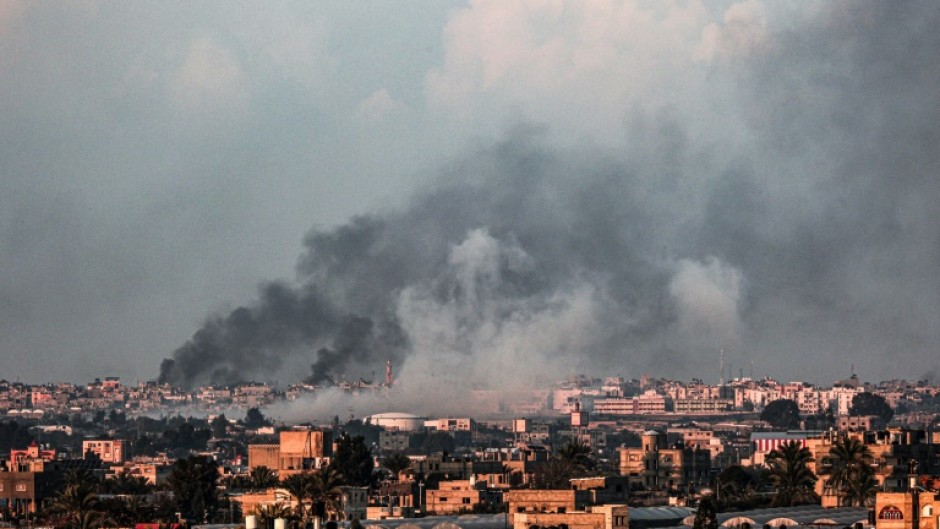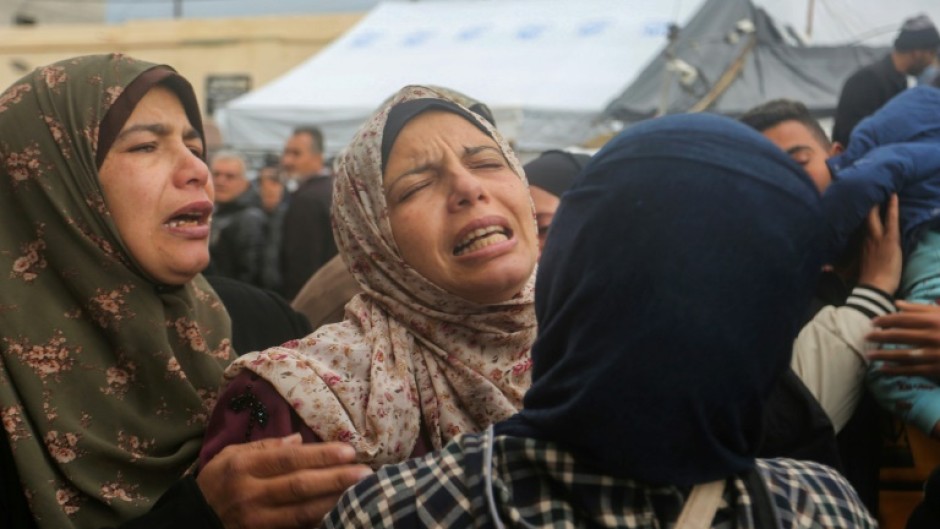Deadly fighting raged on in Gaza on Monday after Israel warned that, unless Hamas frees all hostages, it will push on with its offensive during the Muslim holy month of Ramadan, including in the far-southern Rafah area.
Global concern has mounted over the fate of 1.4 million Palestinians who have been forced into Rafah near the Egyptian border, enduring bombardment and dire food shortages as they live in crowded makeshift shelters and tents.
Overnight strikes and battles in Gaza killed more than 100 Palestinians, mostly women and children, pushing the death toll past 29,000, said the health ministry in the Hamas-run territory, with fighting heaviest in Khan Yunis, just north of Rafah.

War cabinet member Benny Gantz warned on Sunday that the Israeli army is ready to push deeper into Rafah during Ramadan which, based on the lunar calendar, starts around March 10.
"The world must know, and Hamas leaders must know: if by Ramadan the hostages are not home, the fighting will continue everywhere to include the Rafah area," said Gantz, a former military chief of staff.
"We will do so in a coordinated manner, facilitating the evacuation of civilians in dialogue with American and Egyptian partners and to minimise the civilian casualties as much as possible."
He added: "Hamas has a choice. They can surrender, release the hostages, and the civilians of Gaza can celebrate the feast of Ramadan."
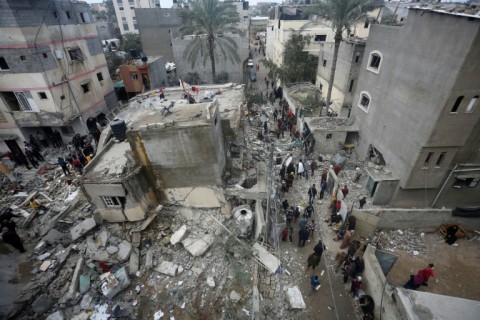
Israel has so far failed to specify where Palestinians could flee after more than four months of devastating war have flattened vast swathes of the Gaza Strip.
Egypt has stressed it does not want Gazans to flee into its Sinai territory, arguing that this would facilitate an effort to empty Gaza of its Palestinian population, an objective Israel denies.
Satellite images show that Egypt has started erecting a walled enclosure parallel to the Gaza border, in an apparent precautionary move in case of a mass refugee flight.
- 'Total victory' -
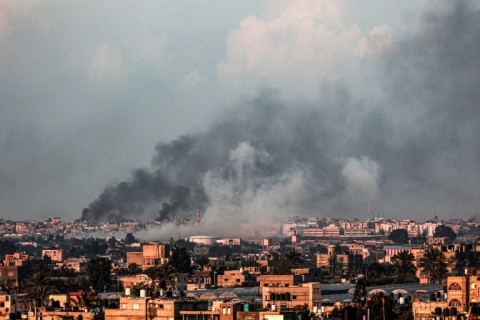
International pressure has grown on Israel to halt the war in the besieged coastal territory, but Prime Minister Benjamin Netanyahu insisted the army will destroy Hamas and bring home the remaining captives.
Speaking on Sunday, the right-wing premier again vowed "total victory" over Hamas, even as he has faced increasing pressure inside Israel from resurgent anti-government protests and desperate relatives of hostages.
The war started when Hamas launched its unprecedented attack of October 7 that left about 1,160 people dead in southern Israel, mostly civilians, according to an AFP tally of official Israeli figures.
The militants of Hamas, considered a "terrorist" group by the United States, EU and other governments, also took about 250 hostages, 130 of whom remain in Gaza, including 30 presumed dead, according to Israel.
Israel's massive retaliatory campaign has killed at least 29,092 people, mostly women and children, according to the latest count by the territory's health ministry.
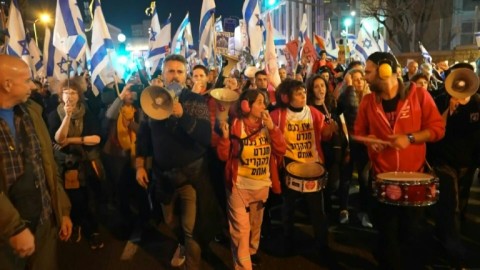
The spiralling humanitarian crisis in Gaza has forced some Palestinians to grind animal feed into flour.
"My children are starving, they wake up crying from hunger," a northern Gaza woman told AFP. "Where do I get food for them?"
The UN agency for Palestinian refugees, which has been bitterly at odds with Israel, said nearly three quarters of Gazans are drinking contaminated water and warned that "the speed of deterioration in Gaza is unprecedented".
- Besieged hospital -
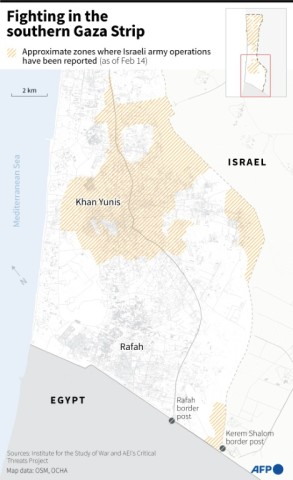
Weeks of truce talks involving US, Egyptian and Qatari mediators have failed to bring a deal to pause the fighting, and Israel has rejected Hamas's demands, which include a total withdrawal of its forces.
Heavy fighting has raged in and around Nasser Hospital in Khan Yunis, which has been besieged for more than a week and which the World Health Organization said is no longer operational.
Israel's army said Saturday it had detained about 100 suspects at the hospital and that it had found medicines there that had been sent for hostages but were never delivered to them.
The Gaza health ministry said seven patients, including a child, had died there since Friday due to power cuts, and "70 staff including intensive care doctors" had been arrested.
At least 20 of the 200 patients still there urgently require relocation to other facilities, WHO chief Tedros Adhanom Ghebreyesus said, adding that his organisation "was not permitted to enter" the site.
Israeli military spokesman Richard Hecht said diesel and oxygen supplies had been delivered to the hospital and a temporary generator was running.
Israeli Defence Minister Yoav Gallant said that in Khan Yunis's Nasser and Al-Amal hospitals, "troops have operated with great precision to apprehend terrorists, with no resulting civilian casualties".
- 'Genocide' claim -
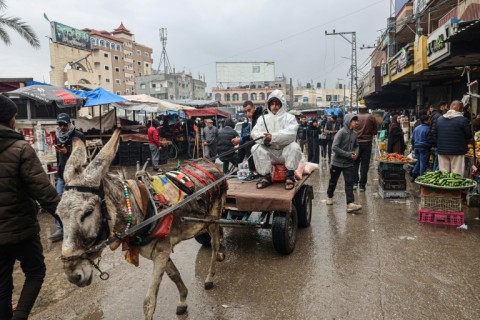
With international pressure piling on Israel, the UN's top court opened a week of hearings from Monday examining the legal consequences of the country's 57-year occupation of Palestinian territories.
Palestinian foreign minister Riyad Al-Maliki told the court his people were suffering "colonialism and apartheid" under the Israelis.
The hearings, requested by the UN General Assembly, are separate from South Africa's high-profile case alleging Israel is committing genocide in its current Gaza offensive.
Western governments have increasingly pushed for unilateral recognition of a Palestinian state to be part of a wider peace process.
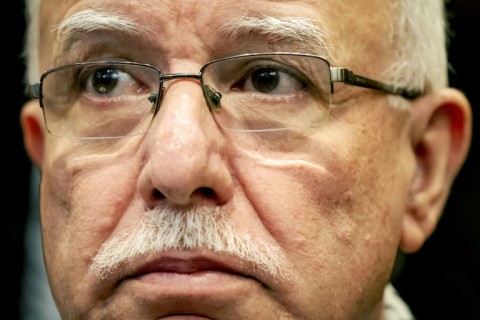
But Israel's government on Sunday adopted a declaration that said "Israel utterly rejects international diktats regarding a permanent settlement with the Palestinians".
It argued any settlement, "if it is to be reached, will come about solely through direct negotiations between the parties, without preconditions".
Brazilian President Luiz Inacio Lula da Silva on Sunday accused Israel of committing "genocide" and compared its actions to Adolf Hitler's campaign to exterminate Jews.
Netanyahu labelled the comments "shameful" as well as a "Holocaust trivialisation and an attempt to harm the Jewish people and the right of Israel to defend itself".

